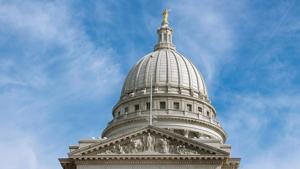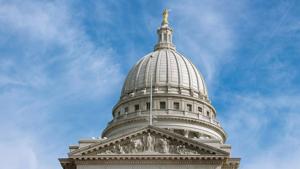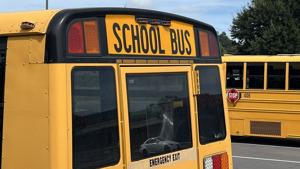(The Center Square) – Voters from 36 states across the country will return to the polls to elect their next governors in 2026.
Several governors races are expected to see fierce competition between parties as they battle for control of their states. In other states, like California, primary challenges are likely to determine who will be elected to state leadership.
Out of 36 governors races in 2026, the Cook Political Report ranks five as “toss ups” where “either party has a good chance of winning.”
Here are those races.
Arizona
Incumbent Democratic Gov. Katie Hobbs is seeking reelection in a race that appears to be hotly contested.
Karrin Robson, a former candidate for Arizona governor, and Arizona U.S. Reps. Andy Biggs and David Schweikert will face off in a three-way primary election for the Republican nomination. Both Biggs and Robson received endorsements from President Donald Trump in the race for governor.
Robson has run on implementing principles of Trump’s Department of Government Efficiency to reduce government spending in Arizona.
“While Katie Hobbs misplaces hundreds of millions of taxpayer funds and grows the government, Karrin will shrink it,” Robson’s website reads. “She will streamline operations, prioritize responsible spending, and hold every agency accountable.”
Biggs has focused on border security throughout his campaign so far, with a focus on implementing Trump’s immigration agenda.
Hobbs has made affordability a focus of her campaign, touting her record over the past four years of reducing budget deficits in the state and providing tax cuts to middle class families. She also highlighted her work to order National Guard troops to the southern border.
Arizona’s primary election to determine who Hobbs will face off against in the general election is set for Aug. 4.
Michigan
Democratic Gov. Gretchen Whitmer is term-limited and a crowded group looks to succeed her.
Secretary of State Jocelyn Benson and Lt. Gov. Garlin Gilchrest, are looking to win the Democratic nomination for the Great Lakes State. They are joined by Democrats Marni Sawicki, former mayor of Cape Coral, Fla., and Chris Swanson, sheriff of Genesee County.
U.S. Rep. John James, former Michigan attorney general Mike Cox and Tom Leonard, former speaker of the Michigan House of Representatives, are vying for the Republican nomination to be Michigan’s governor.
Benson, seen as a frontrunner for the Democratic nomination according to recent polling data, has focused her campaign on highlighting past achievements as the secretary of state. She has highlighted past achievements in voter security, reducing government bureaucracy, and reducing costs.
“As Secretary of State, Jocelyn has overseen the highest turnout, most secure elections in Michigan’s history by making it easier to vote and harder to cheat,” Benson’s campaign website reads.
As frontrunner for the Republican nomination, James has focused his campaign on lowering taxes and healthcare expenses.
“John will audit wasteful DEI programs, eliminate foreign influence in our institutions, and rebuild trust in government,” James’ website reads.
Michigan will hold its primary election on Aug. 4.
Wisconsin
Democratic Gov. Tony Evers announced in July he is retiring from politics. Evers’ retirement has left a field open for others hoping to fill his post.
Lt. Gov. Sara Rodriguez, former lieutenant Gov. Mandela Barnes, state Rep. Francesca Hong and Milwaukee County executive David Crowley are among a crowded field seeking the Democratic nomination.
In a less crowded race, Republicans in Wisconsin are looking to take back the governor’s mansion as U.S. Rep. Tom Tiffany, Washington County executive Josh Schoemann and Andy Manske have declared campaigns for candidacy.
Barnes has highlighted past issues from his campaign that he plans to focus on as governor. He focused on using public funding to lower energy costs in the state and expanded voting opportunities.
As Republicans look to retake the Wisconsin governorship, frontrunner Tiffany has touted his past legislative experience and pushed for an end to sanctuary jurisdiction laws in Wisconsin.
Wisconsin will hold its partisan primary elections on Aug. 11.
Georgia
Term-limited Gov. Brian Kemp will end his two-term run as the governor of Georgia and hand the reins off to another candidate in the Peach State.
On the federal level, Georgia is considered a swing state with two Democratic U.S. senators and the state’s preferring Joe Biden in 2020 but Trump in 2024. However, on the state level, Republicans have consistently had the advantage.
Several members of Kemp’s cabinet have declared their candidacy for the seat. Attorney General Chris Carr, Lt. Gov. Burt Jones and Secretary of State Brad Raffensberger are each vying for the Republican nomination.
President Donald Trump offered Jones his “Complete and Total Endorsement” for governor in August 2025, giving a boost to the lieutenant governor’s bid.
“We’re fighting for election integrity, lower taxes, and to secure Georgia values,” Jones wrote in a post on social media.
Democrats in Georgia are hopeful to capitalize on their wins in the U.S. Senate by flipping the governor’s mansion.
Former Republican Lt. Gov. Geoff Duncan, former mayor of Atlanta Keisha Lance Bottoms and Mike Thurmond have all declared candidacy for the Democratic governor nomination.
Lance Bottoms has focused on expanding Medicaid as a key component of her campaign for governor.
“Keisha will work to eliminate income taxes for teachers, crack down on corporate landlords that are buying up houses and making it harder for families to buy a home or afford rent, and she will invest in education so our children have better pathways to success through career training or college,” Lance Bottom’s website reads.
Georgia’s primary election is set for May 19.
Nevada
Incumbent Republican Gov. Joe Lombardo is running for a second term in Nevada. With less competition compared to other battleground states, Attorney General Aaron Ford looks to be the Democrat poised to take on Lombardo.
In 2024, Trump won Nevada as the first Republican president to do so since 2004.
Ford has received endorsements from both Democrat U.S. Sens. Catherine Cortez Masto and Jacky Rosen in his bid for governor.
Trump has endorsed Lombardo is his reelection campaign.
“As governor, he is fighting tirelessly to Grow the Economy, Cut Taxes and Regulations, Ensure NO TAX ON TIPS, Advance MADE IN THE U.S.A., Unleash American Energy DOMINANCE,” Trump wrote on social media. “Joe Lombardo is SMART, STRONG, AND TOUGH.”
















